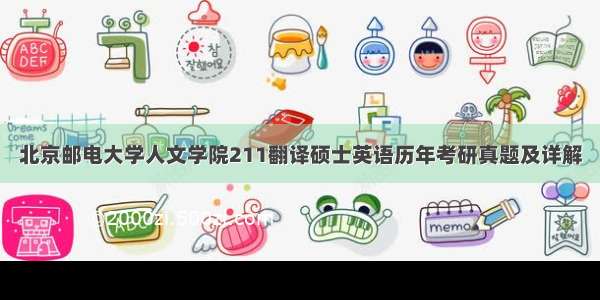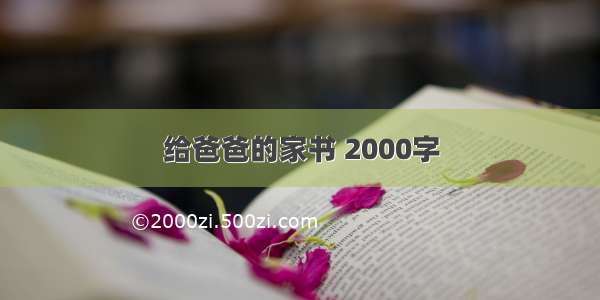
来源百度《精研学习网》
北京邮电大学211翻译硕士英语考研真题及详解
Part 1 Multiple Choice(20 points)
Directions: Thereare20 blanks in the following passage. For each blank there are four choice marked A, B, C. and D. You should choose the ONE that best fits into the passage. Then mark the corresponding letter on the Answer Sheet with a single line through the center.
From childhood to old age, we all use language as a means of broadening our knowledge of ourselves and the world about us. When humans first 1 ,they were like newborn children, unable to use this 2 tool. Yet once language developed, the possibilities for humankind’s future 3 and cultural growth increased.
Many linguists believe that evolution is 4 for our ability to produce and use language. They 5 that our highly evolved brain provides us 6 animate language ability not found in lower 7 . Proponents of this innateness theory say that our 8 for language is inborn, but that language itself develops gradually 9 a function of the growth of the brain during childhood. Therefore there are critical 10 times for language development.
Current 11 of innateness theory are mixed, however, evidence supporting the existence of some innate abilities is undeniable. 12 , more and more schools are discovering that foreign languages are best taught in 13 grades. Young children often can learn several languages by being 14 to them, while adults have a much harder time learning another language once the 15 of their first language have firmly fixed.
16 some aspects of language are undeniably innate, language does not develop automatically in a vacuum. Children who have been 17 from other human beings do not possess language. This demonstrates that 18 with other human beings is necessary for proper language development. Some linguists believe that this is even more basic to human language 19 than any innate capacities. These theorists view language as imitative, learned behavior. 20 ,children learn language from their parents by imitating them. Parents gradually shape their child’s language skills by positively reinforcing precise imitations and negatively reinforcing imprecise ones.
1.A. generated
B. evolved
C. born
D. originated
2.A. valuable
B. appropriate
C. convenient
D. favorite
3.A. attainments
B. feasibility
C. entertainments
D. evolution
4.A. essential
B. available
C. reliable
D. responsible
5.A. confirm
B. inform
C. claim
D. convince
6.A. for
B. from
C. of
D. with
7.A. organizations
B. organisms
C. humans
D. children
8.A. potential
B. performance
C. preference
D. passion
9.A. as
B. just as
C. like
D. unlike
10.A. ideological
B. biological
C. social
D. psychological
11.A. reviews
B. reference
C. reaction
D. recommendation
12.A. In a word
B. In a sense
C. Indeed
D. In other words
13.A. various
B. different
C. the higher
D. the lower
















